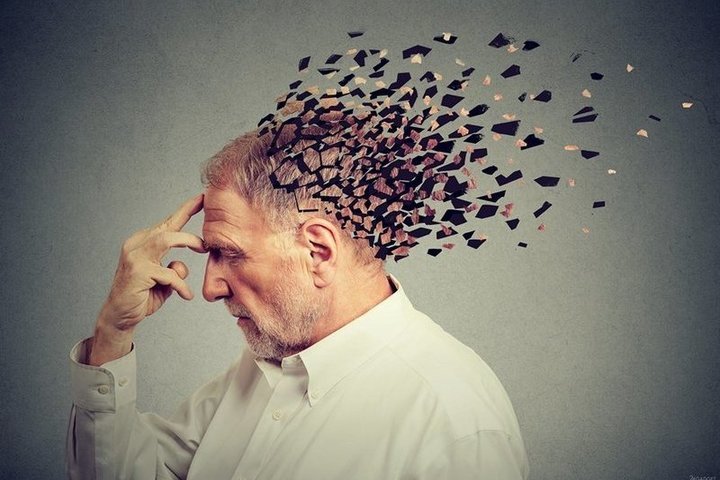It turned out that the brain after coronavirus can age by 20 years in a year
[ad_1]

Cognitive impairment has become one of the most frequently reported side effects of the disease.
Over the years since the beginning of the pandemic, hundreds of studies have been conducted around the world that have shown the destructive effects of SARS-CoV-2 on all organs and systems, including the brain. Scientists have found that the chances of survivors of developing cognitive impairment increase many times over, and their risk of developing dementia or Alzheimer’s disease greatly increases. However, one of the latest scientific works showed that everything is very bad: according to scientists, cognitive deficits one year after COVID-19 in hospitalized patients are equivalent in magnitude to twenty years of aging.
Sensory (mainly olfactory and auditory) and cognitive impairments have become some of the most frequently reported side effects of COVID-19. However, while a huge number of researchers are now studying sensory disorders, the neurological consequences of COVID-19 still remain a mystery, despite the fact that almost 33% of all patients with COVID-19 show cognitive impairment. Of greatest interest to scientists are encephalopathy and delirium in some survivors.
In a recent preprint uploaded to Research Square, researchers explored the mechanisms behind cognitive impairment after COVID-19. They used serum biomarkers and MRI data from 351 patients with COVID-19 who required hospitalization and compared them with similar studies of nearly 3,000 healthy people. The results showed that SARS-CoV-2 infection was associated with increased levels of markers of brain damage (traumatic brain injury) and decreased cingulate cortex volume one year after patients were hospitalized. The impairments were global in nature and included both subjective and objective decline in the patients’ cognitive abilities. The study authors conclude that COVID-19 significantly impacts neurological function through measurable brain damage and loss of brain thickness and volume.
As laboratory diagnostics doctor Alexander Solovyov explains, if at the time of hospitalization the patient with Covid was 50 years old, then a year later the brain became 70 years old: “An unpleasant metamorphosis. These are the consequences of the impact of COVID-19 on the brain, expressed in immune inflammation, manifested by biochemical signs of injury brain, gray matter loss, and persistent cognitive dysfunction. Global cognitive deficits also include deficits in memory, cognition, attention, emotional disturbances, and symptoms of depression.”
Scientists note that so far neither the causes nor the trajectory of recovery of persistent cognitive impairment after COVID-19 are known, which limits the ability to develop prevention and treatment strategies. Understanding the mechanisms of brain damage during infection allows for targeted therapeutic strategies. The good news is that research has shown that acute treatment with corticosteroids (hormonal drugs like prednisolone) protects against cognitive deficits.
Let us recall that COVID-19, which the world encountered at the end of 2019, has so far claimed at least the lives of more than 7 million people and infected almost 100 times more. The resulting pandemic has severely impacted global health, economics and infrastructure. Alarmingly, more than 60% of COVID-19 survivors continue to have symptoms months or years after recovering from the initial infection, significantly reducing their quality of life. In addition, acute SARS-CoV-2 infection is associated with a number of comorbidities, most of which remain relatively unexplored.
According to Vyacheslav Dubinin, professor of the Department of Human and Animal Physiology, Faculty of Biology, Moscow State University, neurobiologist and immunologist, the long-term effects of a coronavirus infection can be very different, because the infection can significantly increase the risk of developing neuroinflammation, which creates the preconditions for the development of Alzheimer’s disease or Parkinsonism. For example, the herpes virus type 1 is considered by many to be a harmless chickenpox on the lips, but both it and the chickenpox virus (also one of the types of the herpes virus) remain in the neurons of the brain for life. Herpetic infection leads to an increase in the inflammatory status, which increases the risk of developing Alzheimer’s disease in old age. Therefore, even a sluggish inflammatory process during a coronavirus infection can affect the body in the most unexpected way.
[ad_2]
Source link








